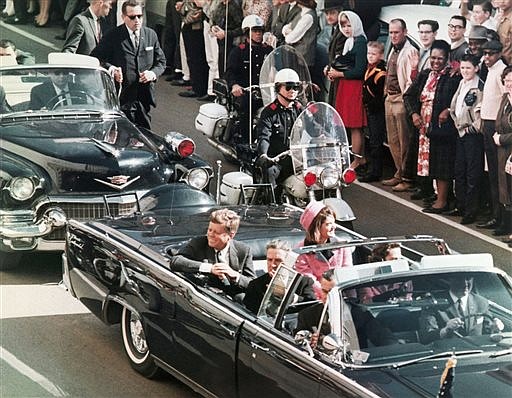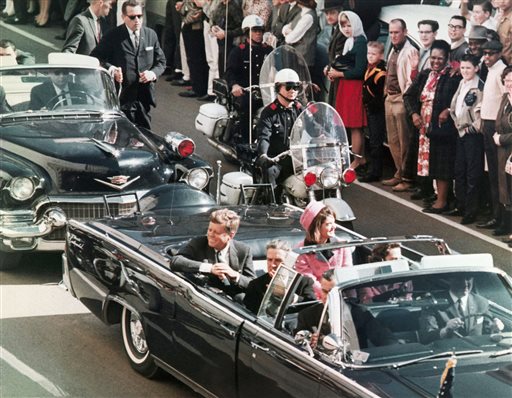American was never quite the same after Nov. 22, 1963.
Yes, we've had other days like the one when President John F. Kennedy was assassinated in Dallas: The day Lincoln was assassinated. The day Pearl Harbor was bombed. The day we tested the first atomic bomb. And, of course, 9-11.
But with all those other days, we actually know why those events happened. With JFK's assassination, there still are many questions unanswered. Perhaps it is the mystery shrouding the "why" of his death that gave birth to the conspiracy theorists who today threaten to suffocate our political discourse.
To the young people in America in 1960, Kennedy was the answer. He was young, he was bold, he was progressive, liberal and idealistic in a time when young adults were moving beyond yesterday's music and mores. For many conventional voters, JFK was a World War II hero and settled leader. But to the radical right of the tumultuous 1960s -- especially those who opposed civil rights -- Kennedy was the devil in a suit.
In the last months JFK lived, he was focused on two great threats to the country: nuclear war and racial conflicts, according to Thurston Clark, author of "JFK's Last 100 Days." So when he was killed at that pivotal time, and then his accused shooter was killed just days later by another assassin, questions swirled fast and furious. Is it any wonder that JFK and his accomplishments have been romanticized?
That's not to say he shouldn't have been elevated to a pedestal. He advanced amazing change. He just didn't live long enough to get to carry it out. Instead, his brother, Robert F. Kennedy, and his vice president, Lyndon Baines Johnson, ably carried the ball. Bobby Kennedy and Johnson, who actually had much stronger political power than JFK, pushed -- even bullied -- the Civil Rights Act through Congress in 1964.
But with JFK's death -- and Bobby Kennedy's equally shocking assassination almost five years later as he campaigned for the Democratic nomination to run for president against Richard Nixon -- idealism in government seemed to die.
The immediate impact was disillusionment among the youngest of American adults, especially as the Vietnam War wore on and we saw our brothers and friends and new husbands come home in caskets. The hope of America's young gave way to unrest and protests like the one that left four students dead on the campus of Kent State -- shot by National Guardsmen, of all things.
Fast-forward 40 years, and perhaps nowhere is the loss of the Camelot-like idealism more apparent than in the constant impasse and obstructionism in today's Congress. The conspiracy theorists who have bloomed in the years since Nov. 22, 1963, can't seem to get past President Barack Obama's color or a preoccupation with his birth certificate. In fact, they can't seem to imagine a role for government, at all. Their aim is anti-government.
Let us hope that the change of filibuster rules introduced Thursday by Sen. Leader Harry Reid and approved 52-48 will be the jolt needed to bring on enough movement in government for the return of at least some hope. From now on, the majority only needs 51 votes, instead of 60, to clear a procedural hurdle on all but Supreme Court nominees before casting a final vote.
With Reid's rule change introduction -- what has become known as the "nuclear option" -- he noted that there have been 168 filibusters of executive and judicial nominations in history, but half of them have occurred during the four and a half years of the Obama administration. Further, only 23 district court nominees have been filibustered in the entire history of this country, and 20 of them were nominated by Obama. Meanwhile, 25 percent of the D.C. Circuit Court has been vacant.
After JFK was killed, a beloved University of Chattanooga English professor, the late George Connor, observed in a memorial that one of Kennedy's gifts was his ability to inspire us: "... the words he spoke on the great occasions were unfailingly words which helped us to see ourselves as a people, words which revived our sense of community and common endeavor, words which gave us a heightened vision of what it can mean to be an American."
Long live hope. And long live our trust in hope, in our country and in a good government to run it. This is a good day to remember our fallen president.

